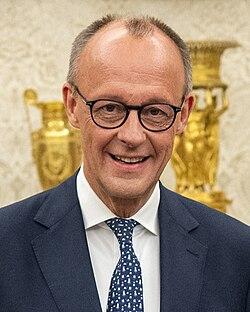Germany’s conservative politician Friedrich Merz sparked controversy with remarks characterizing the conflict with Iran as “the dirty work Israel is doing for all of us.” Speaking in a recent interview, Merz’s comments have ignited a heated debate over Germany’s position on Middle East tensions and its relationship with both Iran and Israel. This article examines the context and implications of Merz’s statement amid ongoing regional conflicts and diplomatic challenges.
Germany’s Friedrich Merz Criticizes Iran Conflict as Israel’s Burden for the West
Friedrich Merz, Germany’s conservative leader, sharply criticized the ongoing conflict with Iran, framing it as a burden unfairly placed on Israel on behalf of Western nations. In recent remarks, Merz expressed concern about Israel’s role in confronting Iran’s aggressive regional ambitions, suggesting that Western countries are relying heavily on Israel to carry out this “dirty work.” He emphasized the need for a more collective and transparent approach to addressing the geopolitical threats posed by Tehran, warning against delegating security responsibilities disproportionately to Israel alone.
Merz’s comments drew immediate reactions across the political spectrum, with both support and skepticism voiced in Germany and abroad. Some analysts noted that his stance reflects a broader unease in Europe about being entangled in Middle Eastern conflicts without a clear strategic framework. The debate highlights several key points:
- Israel’s security burden: The small state grapples with regional threats that some Western powers are reluctant to confront directly.
- European responsibilities: Calls for increased diplomatic and economic efforts to reduce conflict escalations.
- Transatlantic relations: Implications for coordination between European allies and the United States on Middle East policy.
| Aspect | Context | Implications |
|---|---|---|
| Security Burden | Israel confronting Iranian-backed threats | Heightened military pressure on Israel |
| European Stance | Calls for more active diplomatic role | Potential shift in policy and funding |
| Transatlantic Coordination | Collaboration with U.S. and allies | Unified strategies or policy divergence |
Analysis of Merz’s Statements and Their Impact on German-Iran Relations
Friedrich Merz’s recent remarks regarding Iran have triggered a wave of controversy within diplomatic circles and media outlets alike. By characterizing the conflict with Iran as “the dirty work Israel is doing for all of us,” Merz has not only stirred public debate but also complicated Germany’s delicate balancing act in Middle Eastern geopolitics. The statement implies a tacit endorsement of Israel’s aggressive posture toward Iran, potentially signaling a shift in Germany’s traditionally measured foreign policy stance. This rhetoric risks alienating Tehran, which views such comments as an endorsement of hostility and undermines ongoing diplomatic efforts aimed at de-escalation.
The impact on German-Iran relations is multifaceted, as illustrated below:
| Aspect | Effect | Potential Outcome |
|---|---|---|
| Diplomatic Trust | Erosion of bilateral goodwill | Delayed or stalled negotiations |
| Economic Cooperation | Heightened uncertainty in trade talks | Potential reduction in trade and investment |
| Regional Stability | Increased tensions between Iran and German allies | Complications in multilateral diplomatic efforts |
| Public Perception | Negative sentiment among Iranian public and diaspora | Deterioration of cultural and people-to-people exchanges |
Policy Recommendations for Addressing Middle East Tensions Amid Western Divisions
In light of the escalating tensions in the Middle East and growing divisions among Western allies, a cohesive approach is essential to mitigate conflict and promote long-term stability. Western governments must prioritize transparent diplomatic engagement with regional actors, notably Iran and Israel, rather than resorting solely to proxy confrontations. This involves reopening backchannels for dialogue while addressing security concerns through multilateral forums. Additionally, reinforcing support for humanitarian initiatives in conflict zones can help build trust and reduce the likelihood of escalation fueled by civilian suffering.
Policy frameworks should also incorporate:
- Strategic communication efforts to counter inflammatory rhetoric and misinformation exacerbating tensions on all sides.
- Robust intelligence-sharing mechanisms among Western nations to monitor destabilizing activities without deepening rivalries.
- Economic incentives and sanctions calibrated to deter aggressive posturing, balanced with pathways for compliance and de-escalation.
| Policy Measure | Expected Impact |
|---|---|
| Diplomatic Backchannels | Reduced direct conflicts |
| Intelligence Sharing | Enhanced threat detection |
| Targeted Sanctions | Pressure for behavioral change |
In Conclusion
As tensions continue to escalate in the Middle East, Friedrich Merz’s remarks underscore the complex and often contentious dynamics shaping international responses to Iran. His characterization of the conflict as “the dirty work Israel is doing for all of us” highlights the deep divisions and geopolitical challenges faced by global actors. Observers will be closely watching how such statements influence diplomatic discourse and policy decisions in the weeks ahead.




